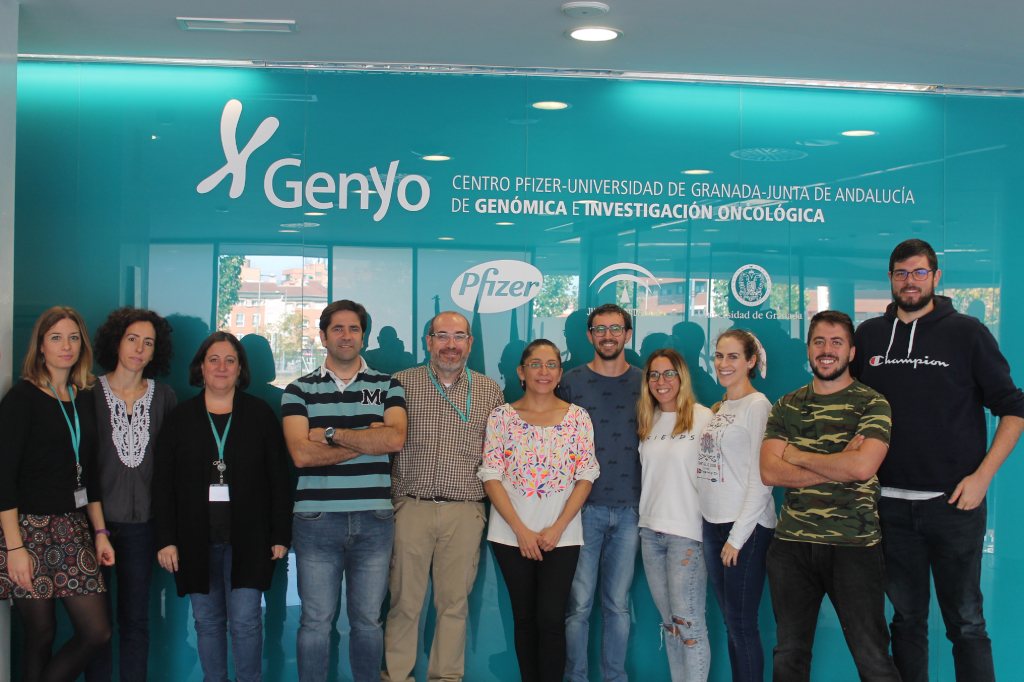Gene Regulation, Stem cells and Development
Dra. Verónica Ramos Mejia, Dr. Pedro Real Luna

Group leader
Verónica Ramos Mejia
Pedro Real Luna
Senior Researches
Rosa María Montes Lorenzo
Rafael Día de la Guardia Quiles
Sonia Perales Romero
Carolina Torres Perales
Scientific interest areas
Human pluripotent stem cells (hPSCs) include both embryonic stem cells (hESCs) and induced pluripotent stem cells (iPSCs). hPSCs have an unlimited proliferation capacity as well as the potential to differentiate to any cellular type present in the adult. With the derivation of hPSCs a new era has started in the fields of regenerative medicine, cell therapy, and research on normal and pathological human embryonic development.
We use hPSCs as a cell model to study the molecular mechanisms regulating hematopoietic and endothelial development in humans, optimize differentiation protocols towards these cell lineages, and apply this knowledge to the generation of disease models.
Research areas
- 1. Human models of hemato-endothelial development based on hPSCs.
During embryonic development, a common bipotent precursor gives rise to both hematopoietic and endothelial cells. hPSCs can differentiate in vitro to generate this bipotent precursor, and depending on the stimuli, it will differentiate towards the endothelial or the hematopoietic lineage.In our lab we are characterizing the molecular pathways activated during hemato-endothelial differentiation using hPSCs. We are focusing in the transcriptional regulators SCL/TAL1, RUNX1, the HOX genes and the Notch pathway. With the information we obtain we want to optimize the in vitro production of functional hematopoietic and endothelial precursor from hPSCs for their use in cell therapy. - 2. Generation of human megakaryocytes and platelets from hPSCs. Patients presenting thrombocytopenia, i.e. a very low number of platelets in blood, have an increased risk of hemorrhages that could cause their death and they depend on platelet transfusions. Currently, platelets are obtained from the blood of healthy donors, but there is a shortage of platelets that can only be solved with a donor–independent, constant source of platelets. Over the last two decades researchers have developed optimized protocols for megakaryocyte and platelet production from hematopoietic stem cells (HSCs). However, the limited in vitro expansion capacity of these HSCs restricts their use as an efficient and constant source of platelets. In contrast to this limitation, hPSCs have an unlimited growth capacity and the potential to generate megakaryocytes and platelets in vitro.Our group studies the molecular and cellular mechanisms regulating megakaryocytic differentiation from hPSCs with a double aim: to optimize the production of large numbers of functional platelets; and to establish hPSC-based human models for platelets disorders.
- 3. Generation of human experimental models of Bernard-Soulier Syndrome using cellular reprogramming. Bernard-Soulier Syndrome (BSS) is a rare platelet disorder characterized by a severe thrombocytopenia associated with frequent bleeding. This disease is caused by mutations in one of the genes coding for the glycoprotein GP Ib-IX-V complex, which is essential for adhesion and platelet aggregation.Our laboratory has generated human cellular models of BSS by reprogramming peripheral blood mononuclear cells from these patients (BSS-iPSCs). We are studying if the megakaryocytes and platelets derived from these BSS-iPSCs maintain the same functional alterations that occur in BSS patients. In addition, we are designing molecular strategies to introduce a normal copy of the mutated genes into the BSS-iPSCs in order to create new gene and cell therapies for BSS treatment.
- 4. Development of human models for infant acute myeloid leukemias based on hPSCs. Acute Myeloid Leukemia (AML) is the cancer with the highest mortality rate among children, even though it is considered a rare disease. In adults, AML arises after the accumulation of somatic mutations in hematopoietic progenitors, while in children, AML is caused by chromosomal alterations that occur in utero. At the moment, children affected with AML are treated with the same therapeutic programs as adults, even though the origin of the transformation events and the prognosis are different.Our group is developing new human models of infant AML based on hPSCs, in which we are mimicking the acquisition of the genetic alterations characteristic of this disease. Our objective is to study the origin of these infant leukemias, understand the molecular pathways that are altered and identify new therapeutic targets.
Research Projects:
Red Nacional de Terapia Celular (TerCel): Instituto de Salud Carlos III.
Research group associated to Granada`s node (RD12/0019/0006).Optimización de sistemas in vitro para la generación de plaquetas humanas a partir de células madre pluripotentes humanas: Alternativa a las transfusiones sanguíneas actuales. Consejería de Salud de la Junta de Andalucía. PI-0030-2014. IP: Rosa M. Montes Lorenzo.
Generación de un modelo experimental de Bernard-Soulier mediante reprogramación celular. Fundación Privada Todos Somos Raros, Todos Somos Únicos. P-091. IP: Pedro J. Real.
Generation Of Human Experimental Models Of Glanzmann Disease And Bernard-Soulier Syndrome By Cellular Reprogramming. Marie Curie Intra-European Fellowship (Ref. 210108830). IP: Lourdes López Onieva/ Pedro J. Real.
Desarrollo de modelos humanos de leucemias megacarioblásticas agudas infantiles mediante la generación de translocaciones cromosómicas usando el sistema CRISP-Cas9 en células pluripotentes humanas. Ref. FII2015-212. Fundación Inocente Inocente. IP: Verónica Ramos Mejía.
Desarrollo de modelos humanos de leucemias megacarioblásticas agudas infantiles basados en células pluripotentes humanas para la identificación de nuevas dianas terapéuticas. Ref. PI14/01412. Instituto de Salud Carlos III. IP: Verónica Ramos Mejía.
Identificación de Nuevas Dianas Terapéuticas para la Leucemia Megacarioblástica Aguda Infantil Con Reordenamiento Cromosómico t(1;22) Usando Un Modelo Basado en Células Pluripotentes Humanas. Fundación L’Oreal-UNESCO For Women In Science. IP: Verónica Ayllón Cases.
Desarrollo de Herramientas de Terapia Génica para el Tratamiento del Síndrome de Bernard-Soulier. Fundación Mehuer. IP: Lourdes López Onieva.
Technology platforms
-
- Flow cytometry
- MACS and FACS cell sorting
- Lentiviral transduction
- Cell reprogramming
- Primary cell culture: leukemias
- Molecular biology and biochemistry
- Animal experimetation using NSG mice. IBMT and IV transplantation
Funding
-
- Instituto de Salud Carlos III
- Servicio Andaluz de Salud, Junta de Andalucía
- Consejería de Economía, Innovación y Ciencia de la Junta de Andalucía
Researchs group patents
1) INVENTORS: Pedro J Real; Miguel García; Pablo Menéndez; Francisco Martin; Oscar Navarro; Verónica Ayllón; Verónica Ramos-Mejía; Marién Cobo; Clara Bueno; Tamara Romero.
TITLE: MÉTODO DE OBTENCIÓN DE MEGACARIOCITOS Y PLAQUETAS.
REF. NUMBER: P201331568
DATE: 24/10/2013
PROPERTY: FUNDACION PUBLICA ANDALUZA PROGRESO Y SALUD.
2) INVENTORS: Pablo Menéndez; Mario Delgado; René Rodríguez; Ruth Rubio; Gertrudis Ligero; Laura Sánchez; Iván Gutiérrez-Aranda; Verónica Ramos-Mejia; Clara Bueno.
TITLE: PROCEDIMIENTO PARA LA OBTENCIÓN DE CÉLULAS MADRE MESENQUIMALES PARA USO BIOMÉDICO.
REF. NUMBER: P201030645
DATE: 30/04/2010
PROPERTY: FUNDACION PUBLICA ANDALUZA PROGRESO Y SALUD.
3) INVENTORS: Pablo Menéndez; Verónica Ramos-Mejía; Clara Bueno; Pedro J Real; Gertrudis Ligero; Laura Sánchez; Iván Gutiérrez-Aranda.
TITLE: USO DE UN MEDIO DE CULTIVO CONDICIONADO POR CÉLULAS MADRE MESENQUIMALES PARA LA DIFERENCIACIÓN DE CÉLULAS MADRE PLURIPOTENTES HUMANAS.
REF. NUMBER: P0201030512
DATE: 08/04/2010
PROPERTY: FUNDACION PUBLICA ANDALUZA PROGRESO Y SALUD.
Selected publications
 Loading publications...
Loading publications... Intranet
Intranet